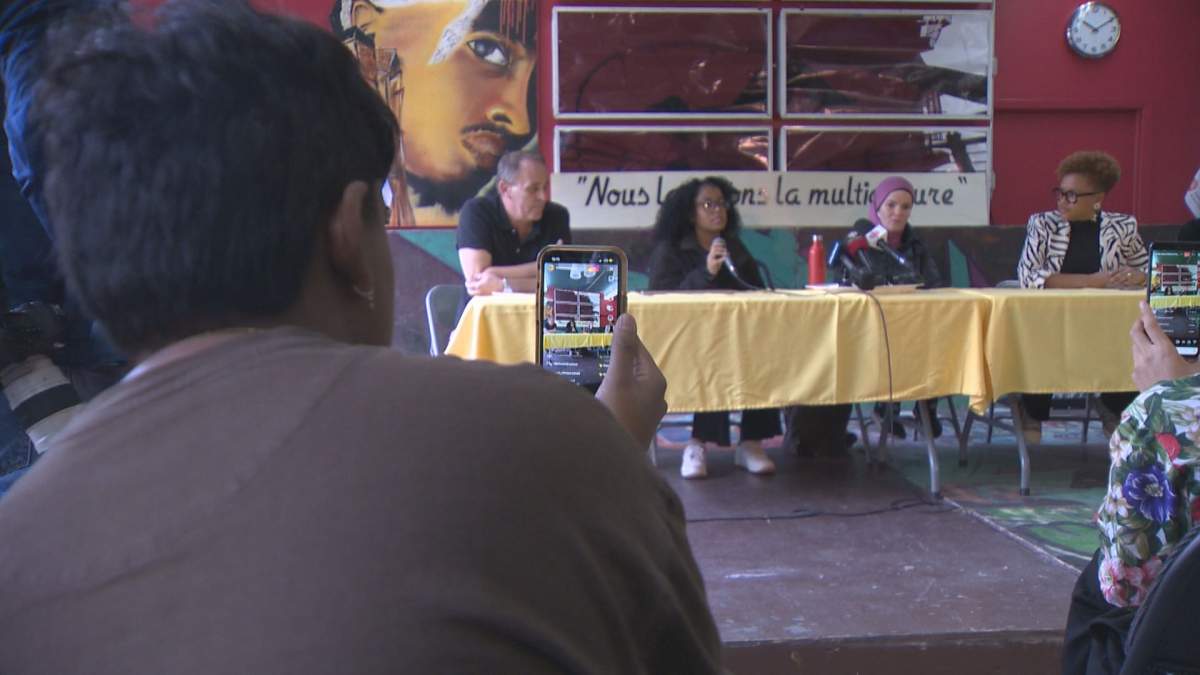A coalition of organizations, parents and youth workers in Montreal are voicing their concern with the city’s newly announced police-in-schools program.

Speaking at a press conference the coalition says they are gravely worried about the ramifications of the policing program on marginalized youth, specifically Black, Indigenous and racialized immigrants.
Marlihan Lopez of École Sans Police, a group comprised of various organizations from Montreal North, claims those students will be negatively impacted by this initiative.
Members like assistant McGill professor, Nanre Nafziger said the program needs to be halted.
“There are so many dynamics that go on that create this environment of hostility. That creates an environment of fear. The environment leaves students not feeling cared for or concerned about,” Nafziger said.
“They are seeing a replication of what they are seeing in their communities now being inside their schools.”
READ MORE: Montreal police arrest 12 people over incidents relating to high school safety
The Quebec government is allocating $4.05 million to the city of Montreal and the SPVM police force to implement a new Police in Schools program.

Get daily National news
Another $400,000 will be put towards the initiative by the City of Montréal.
The program would see intervention teams roaming the hallways and premises of schools that have been rocked by recent gun violence.

Called ‘Équipe-école,’ the team of ten professionals is expected to be established in schools by this fall.
The squad is made of not only of specialized police officers but also psychologists.
A team of cybercrime specialist will also be on hand to deal with issues off school property.
READ MORE: 16-year-old teen stabbed outside a school in Montreal’s east end: police
The goal of the program, according to the SPVM, is prevention – targeting gun violence and other criminal activity in schools.
The coalition worries the program does the opposite turning the school into a police state.
“If they fear for safety in the streets they should not fear for it in their schools,” Nafziger said.
“Teachers, instead of solving the problems on the school grounds, they resort to suspensions or calling for police officers putting students in the school to prison pipeline because they become documented,” Nafziger said.
Slim Hammami, coordinator at Café Jeunesse Multiculturel – a Montréal north youth group – agrees.
Hammami says less intimidating measures could be used, such as additional social worker support during interventions, to better suit the students in schools affected by violence.










Comments